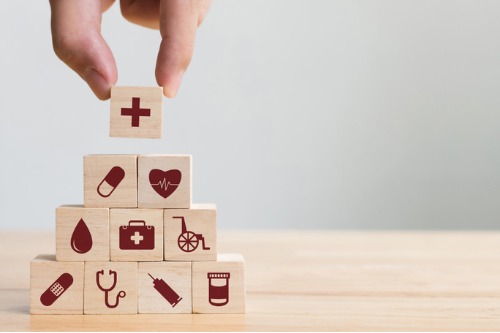
The Royal Melbourne Institute of Technology will soon launch Australia’s first digital healthcare ecosystem, with Victoria being the first state to offer the platform.
The development was born out of a new partnership between RMIT and the European Connection Health Alliance (ECHAlliance) to create the Melbourne Ecosystem.
The new initiative seeks to boost connections among patients, clinicians, researchers, tech providers and even policy makers and is expected to provide opportunities for various sectors to hold regular meetings, events and online platforms.
Clare Russell, RMIT’s director of Research Partnerships & Initiatives, said RMIT is well-positioned to host the ecosystem with its “strong reputation in design-led solutions for health and social care”.
“This is evidenced through the Health Transformation Lab, RMIT’s membership to the Digital Health CRC and ANDHealth, the Future Social Services Institute and our participation in the Aitkenhead Centre for Medical Discovery – all facilitating innovative, patient-centred design,” Russell said.
ECHAlliance director of Ecosystems and Membership, Andy Bleaden, said the Melbourne Ecosystem, which will be connected to an international network across three continents, follows the launch of other digital health ecosystems in Canada, Malta and Sri Lanka.
"We already have 34 thriving ecosystems in Europe and beyond – developing and driving healthcare transformations and breaking down silos as well as providing new economic opportunities," Bleaden said.
In 2018, RMIT Europe ran a symposium with ECHAlliance on the transformation of healthcare to suit an ageing population. This year, both RMIT and ECHAlliance also held a forum on blockchain and health.
Russell said the ecosystem will not only further the University’s ties with ECHAlliance, but also with other partners and networks.
“Our research and innovation priorities in health innovation will support the growth of the Melbourne Ecosystem – bringing together the right people for true transformation in the sector,” Russell said.
"The Melbourne Ecosystem will engage with ecosystems across the world, further providing knowledge exchange opportunities for Australian researchers, health providers and community groups.”
In catch-up mode
A recent conference in Barcelona co-organised by RMIT Europe and Vall d’Hebron Hospital Campus shed light on what needs to be done to improve healthcare.
Telefónica’s head of Digital Health Operations, Julio Sánchez, said one of the calls to action from the conference was the increasing need for digital transformation.
Sánchez said technology – especially the type that is “invisible for the patient” and “used in a natural way” – can lead to better patient outcomes.
However, with the deluge of many health apps, patients have to also be in on the conversation, writes by Debra Jackson and Louise Hickman, faculty members from University of Technology Sydney (UTS), and Caleb Ferguson, a senior research fellow at Western Sydney University, in an article published in The Conversation.
Jackson is a Nursing professor while Hickman is an Associate Professor of Nursing as well as the director of Palliative Care Studies.
“If we are to produce useful digital therapeutics for real-world problems, then it is critical that the end-users are engaged in the process,” the authors wrote.
“Patients and healthcare professionals will need to work with software developers to design applications that meet the complex healthcare needs of patients.”


